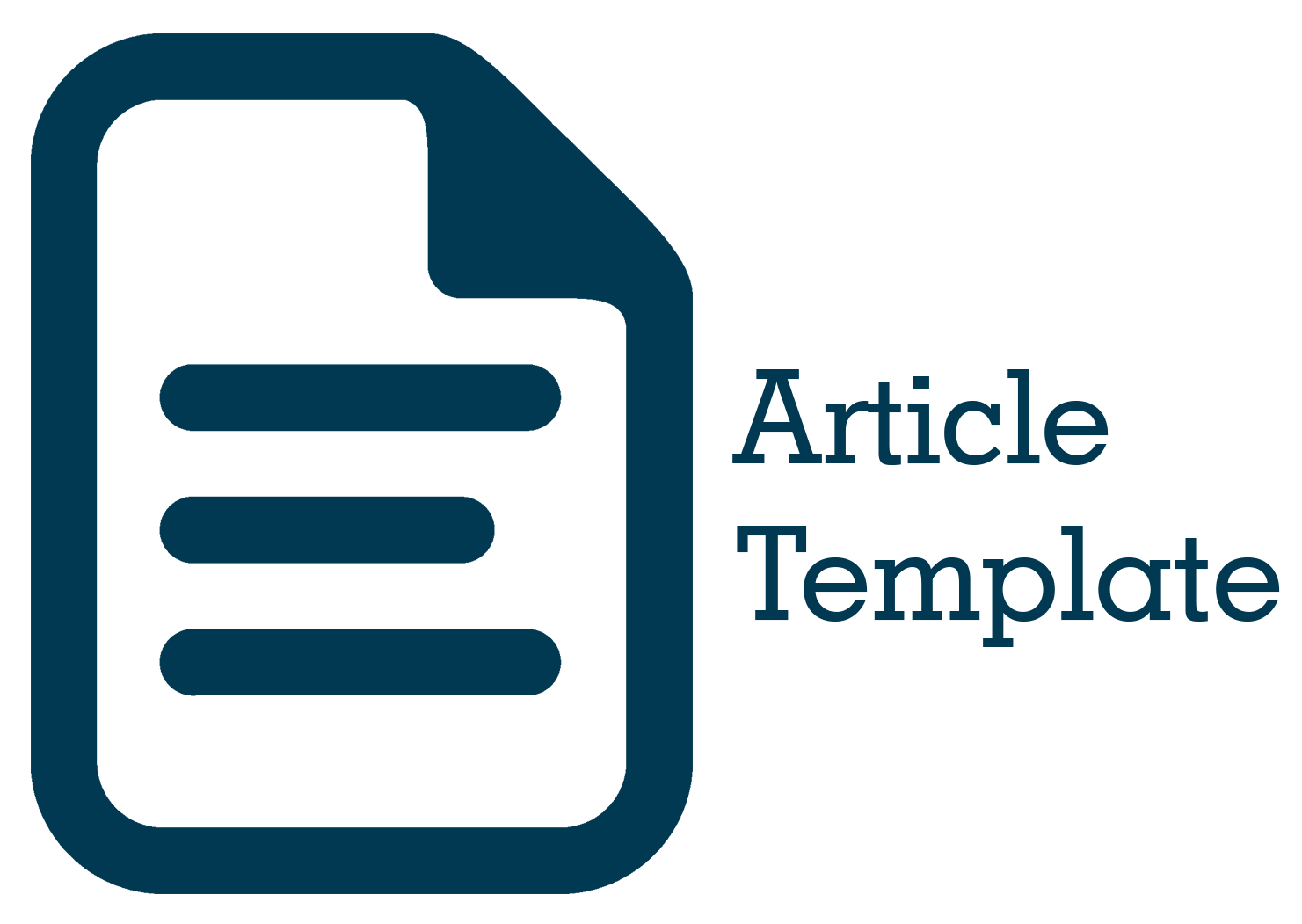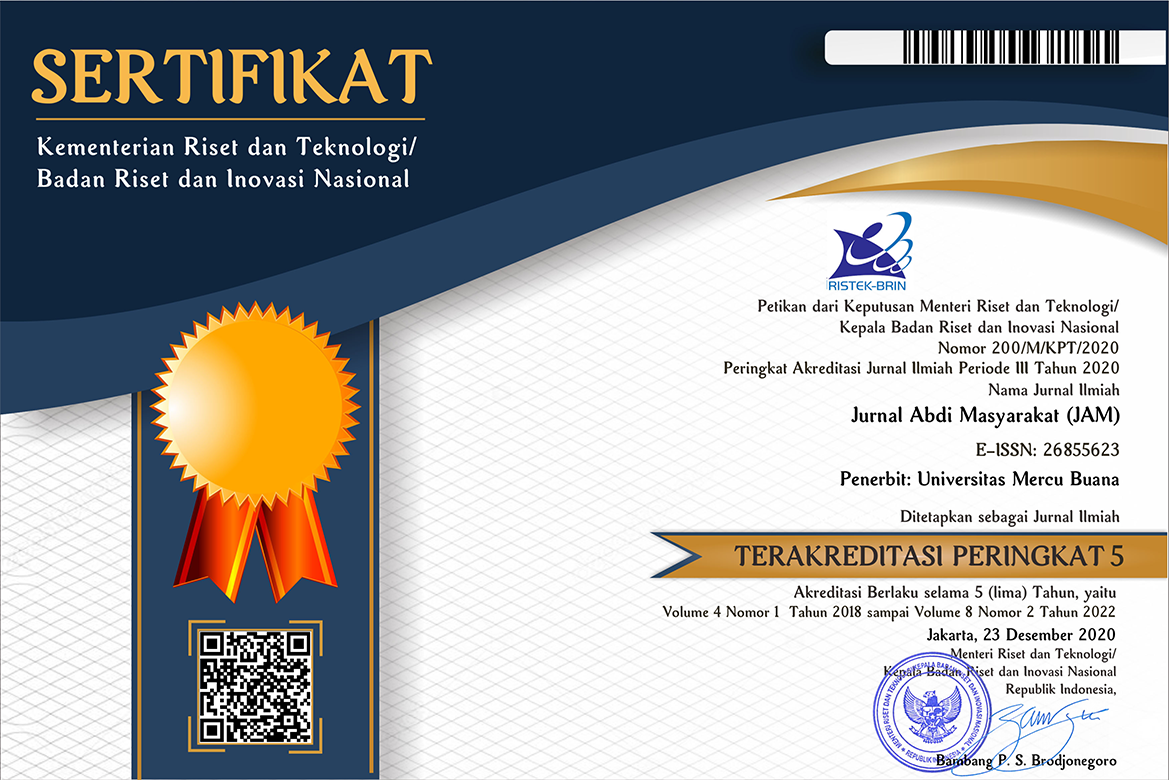Improving the Green Economy Utilizing ReadCharge Solar Literacy Technology at SMP Arrihlah
Abstract
Keywords
Full Text:
PDFReferences
Adams, J., Kenner, A., Leone, B., Rosenthal, A., Sarao, M., & Boi-Doku, T. (2022). What is energy literacy? Responding to vulnerability in Philadelphia’s energy ecologies. Energy Research and Social Science, 91. https://doi.org/10.1016/j.erss.2022.102718
Appiah, M. K., Gyening, E. K., Teye, P. K., Frimpong, C., & Nsowah, A. (2023). The implications of energy literacy on energy savings behavior: A model of contingent effects of energy value and attitude. Energy Reports, 10. https://doi.org/10.1016/j.egyr.2023.06.008
Fuadi, H., Robbia, A. Z., Jamaluddin, J., & Jufri, A. W. (2020). Analisis Faktor Penyebab Rendahnya Kemampuan Literasi Sains Peserta Didik. Jurnal Ilmiah Profesi Pendidikan, 5(2). https://doi.org/10.29303/jipp.v5i2.122
Goldman, D., Ayalon, O., Baum, D., & Weiss, B. (2018). Influence of ‘green school certification’ on students’ environmental literacy and adoption of sustainable practice by schools. Journal of Cleaner Production, 183, 1300–1313. https://doi.org/10.1016/j.jclepro.2018.02.176
Hamidi, M. P., Muhammad Anas Fadli, & Yonathan Wiryajaya Wilion. (2022). Tinjauan Green Economy dalam Hukum Persaingan Usaha di Indonesia. Jurnal Persaingan Usaha, 2(1). https://doi.org/10.55869/kppu.v3i-.48
Kamalanon, P., Chen, J. S., & Le, T. T. Y. (2022). “Why do We Buy Green Products?” An Extended Theory of the Planned Behavior Model for Green Product Purchase Behavior. Sustainability (Switzerland), 14(2). https://doi.org/10.3390/su14020689
Kumar, P., Pillai, R., Kumar, N., & Tabash, M. I. (2023). The interplay of skills, digital financial literacy, capability, and autonomy in financial decision making and well-being. Borsa Istanbul Review, 23(1), 169–183. https://doi.org/10.1016/j.bir.2022.09.012
Magomedov, I. A., Murzaev, H. A., & Bagov, A. M. (2020). The role of digital technologies in economic development. IOP Conference Series: Materials Science and Engineering, 862(5). https://doi.org/10.1088/1757-899X/862/5/052071
Moslehpour, M., Chau, K. Y., Du, L., Qiu, R., Lin, C. Y., & Batbayar, B. (2023). Predictors of green purchase intention toward eco-innovation and green products: Evidence from Taiwan. Economic Research-Ekonomska Istrazivanja , 36(2). https://doi.org/10.1080/1331677X.2022.2121934
Mueller, S. (2017). Green technology and its effect on the modern world.
Naufal, H. A. (2021). LITERASI DIGITAL. Perspektif, 1(2). https://doi.org/10.53947/perspekt.v1i2.32
Nuryakin, & Maryati, T. (2020). Green product competitiveness and green product success. Why and how does mediating affect green innovation performance? Entrepreneurship and Sustainability Issues, 7(4), 3061–3077. https://doi.org/10.9770/jesi.2020.7.4(33)
Nusraningrum, D. (2021). Manajemen Strategi 4.0: Strategi Menghadapi Disruption Di Era Digital.
Nusraningrum, D. (2023). IMPLEMENTATION OF QUALITY EDUCATION THROUGH HUMAN RESOURCES IN VOCATIONAL HIGH SCHOOL. ICCD, 5(1), 388–395. https://doi.org/10.33068/iccd.v5i1.632
Nusraningrum, D., Sugiyono, S., & Koe, W.-L. (2023). Green Product In Micro Small Medium Enterprises (MSME). Dinamisia : Jurnal Pengabdian Kepada Masyarakat, 7(4), 1161–1167. https://doi.org/10.31849/dinamisia.v7i4.11148
Shoimah, R. N. (2020). Implementasi Gerakan Literasi di Sekolah (Studi Kasus di SDN Karah 1 Surabaya). MIDA : Jurnal Pendidikan Dasar Islam, 3(2). https://doi.org/10.52166/mida.v3i2.984
Tezer, A., & Bodur, H. O. (2021). The green consumption effect: How using green products improves consumption experience. Journal of Consumer Research, 47(1). https://doi.org/10.1093/JCR/UCZ045
UNEP. (2010). Green economy: developing countries success stories. United Nations Environment Program.
Wilkes, S., Kazakoff, E. R., Prescott, J. E., Bundschuh, K., Hook, P. E., Wolf, R., Hurwitz, L. B., & Macaruso, P. (2020). Measuring the impact of a blended learning model on early literacy growth. Journal of Computer Assisted Learning, 36(5), 595–609. https://doi.org/10.1111/jcal.12429
DOI: http://dx.doi.org/10.22441/jam.v11i1.31098
Refbacks
- There are currently no refbacks.
Copyright (c) 2025 Jurnal Abdi Masyarakat (JAM)

This work is licensed under a Creative Commons Attribution-ShareAlike 4.0 International License.
Indexing by :

|
|

|

|

|

|

|

This work is licensed under a Creative Commons Attribution-ShareAlike 4.0 International License
Jurnal Abdi Masyarakat
Pusat Pengabdian Pada Masyarakat
Jl. Raya Meruya Selatan, Kembangan, Jakarta 11650
Tlp./Fax: +62215871335
p-ISSN: 2460-352X
Online-ISSN: 2686-5623
http://publikasi.mercubuana.ac.id/index.php/jam








